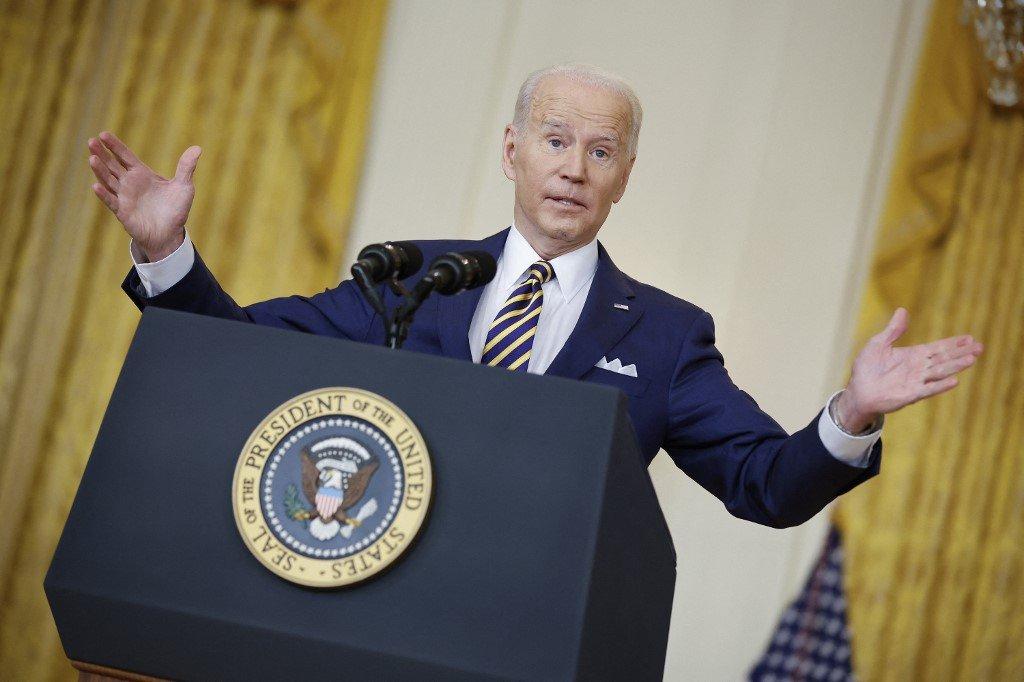Biden sells renewed US leadership in first Asia trip, but North Korea looms
The trip is being touted as proof that the US is further building on recent moves to cement its years-long pivot to Asia, where rising Chinese commercial and military power is increasingly pushing back against decades of US leadership.
Just In
Joe Biden leaves Thursday for his first trip as president to Asia convinced that the confrontation with Russia has reinvigorated US leadership, while wary that a rogue North Korean nuclear test could tear up the optimistic script.
The Democrat is going to South Korea, then Japan on Sunday to hold summits with the leaders of both countries, as well as joining a regional summit of the Quad group – Australia, India, Japan, and the US – while in Tokyo.
During the first leg, he will visit US and South Korean troops, but will not make the traditional presidential trek to the fortified frontier known as the DMZ between South Korea and the unpredictable, isolated dictatorship of North Korea, the White House said.
The trip is being touted as proof that the US is further building on recent moves to cement its years-long pivot to Asia, where rising Chinese commercial and military power is increasingly pushing back against decades of US leadership.
National Security adviser Jake Sullivan rejected the idea that the war in Ukraine is distracting Biden from that mission.
Underlining the competing demands from two sides of the world, Biden will be meeting Thursday morning at the White House with the leaders of Finland and Sweden to celebrate their applications for joining Nato right before he boards Air Force One for Seoul.
But Sullivan said there was no “tension” in the twin focus. “We regard this as mutually reinforcing,” Sullivan told reporters.
“There’s something quite evocative about going from meeting with the president of Finland and the prime minister of Sweden to reinforce the momentum behind the NATO alliance and the free world’s response to Ukraine, then getting on a plane and flying out to the Indo-Pacific.”
North Korean wild card
Briefing reporters on the aims of the trip, Sullivan said Biden is headed to Asia with “the wind at our back” after successful US leadership in creating the tough Western response to President Vladimir Putin’s now almost three-month long invasion of neighbouring Ukraine.
The high military, diplomatic and economic cost facing Russia is seen in Washington as a cautionary tale for China to digest as it eyes ambitions to gain control over democratic-ruled Taiwan, even if that means going to war.
But for all the White House’s evident self-confidence, officials admit that North Korea’s nuclear weapons programme is a wild card on the trip.
Sullivan said it was possible that North Korea, which has defied UN sanctions in conducting an array of nuclear-capable missile tests this year, could use Biden’s visit to stage “provocations.”
This could mean “further missile tests, long range missile tests or a nuclear test, or frankly both, in the days leading into, on or after the president’s trip to the region,” he said.
The Biden administration is prepared to “make both short and longer term adjustments to our military posture as necessary to ensure that we are providing both defensive deterrence to our allies in the region and that we’re responding.”
Sullivan said a potential response was being “closely” coordinated with South Korea and Japan and that he had also spoken about the issue with his Chinese counterpart earlier Wednesday.
West meets East
Sullivan said the administration wants not so much to confront China on the trip as to use Biden’s diplomacy to show that the West and its Asian partners will not be divided and weakened.
He pointed to cooperation from South Korea and Japan, among others, in the sanctions regime against Russia led by European powers and the US. He also referred to Britain’s role in the recently created security partnership Aukus.
“European countries are increasingly invested in the Indo-Pacific,” he said.
“So for us, there is a certain level of integration and symbiosis in the strategy we are pursuing in Europe and the strategy we’re pursuing in the Indo-Pacific. And President Biden’s unique capacity to actually stitch those two together, I think, is going to be a hallmark of his foreign policy,” Sullivan said.
This “powerful message” will be “heard in Beijing,” Sullivan said, “but it’s not a negative message and it’s not targeted at any one country.”
Subscribe to our newsletter
To be updated with all the latest news and analyses daily.
